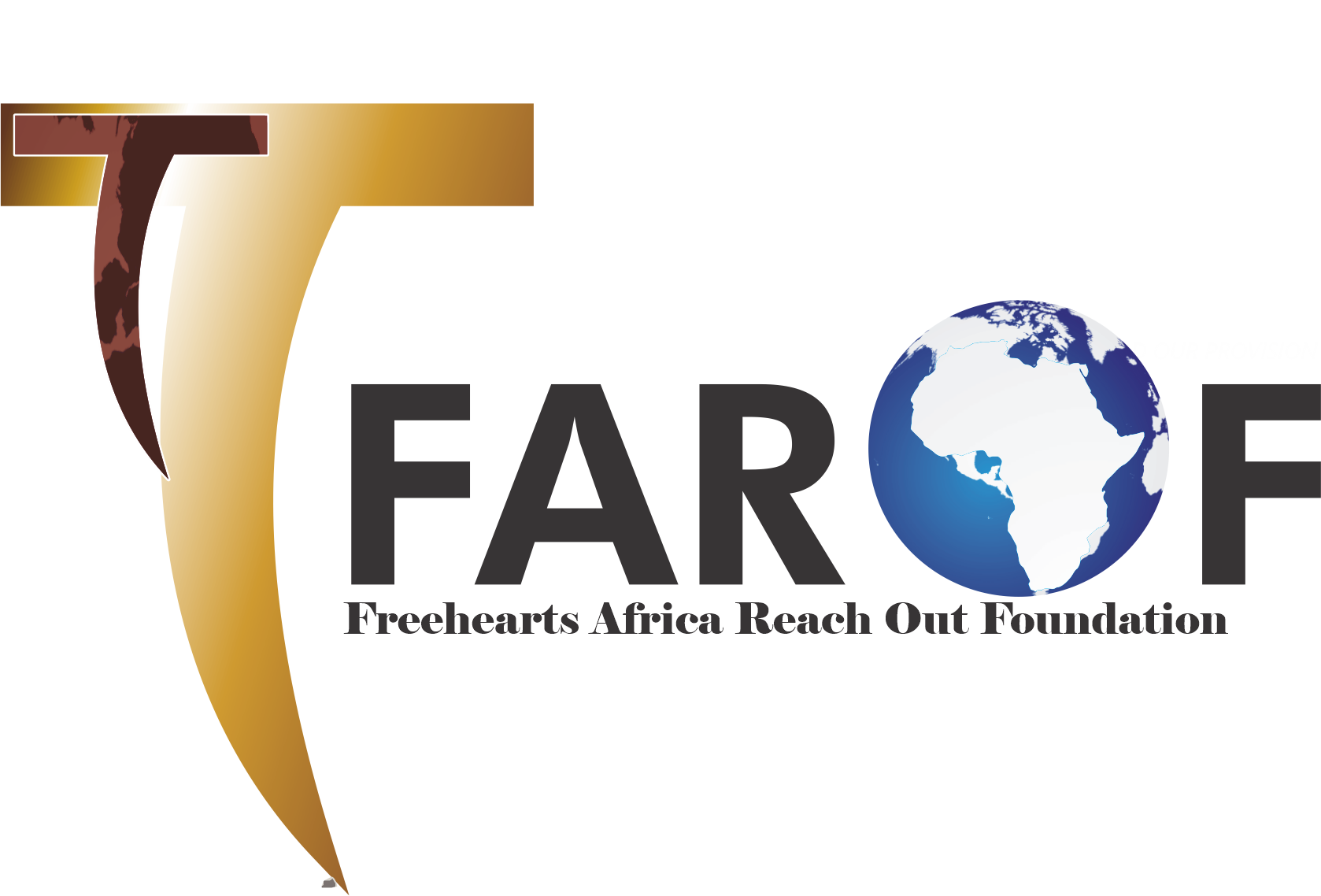COVID-19 Emergency Response
Our Response to the Covid – 19 Pandemic
With the Coronavirus pandemic changing life as we know it, FAROF continues to navigate its impact on grantees, staff and the rightsholders. Your safety is our priority. What you need to know about the virus to protect you and your family
What is a ‘novel’ coronavirus?
A novel coronavirus (CoV) is a new strain of coronavirus. The disease caused by the novel coronavirus first identified in Wuhan, China, has been named coronavirus disease 2019 (COVID-19) – ‘CO’ stands for corona, ‘VI’ for virus, and ‘D’ for disease. Formerly, this disease was referred to as ‘2019 novel coronavirus’ or ‘2019-nCoV.’
The COVID-19 virus is a new virus linked to the same family of viruses as Severe Acute Respiratory Syndrome (SARS) and some types of common cold.
COVID-19 has been described as a pandemic by the World Health Organization. What does that mean?
Characterizing COVID-19 as a pandemic is not an indication that the virus has become deadlier. Rather, it’s an acknowledgement of the disease’s geographical spread.
FAROF is supporting the government of Nigeria, through trainings on production of affordable facemask, handwash and other preventive measures, while practicing social distancing, FAROF will continue working with governments and our partners to stop transmission of the virus, and to keep children and their families safe.
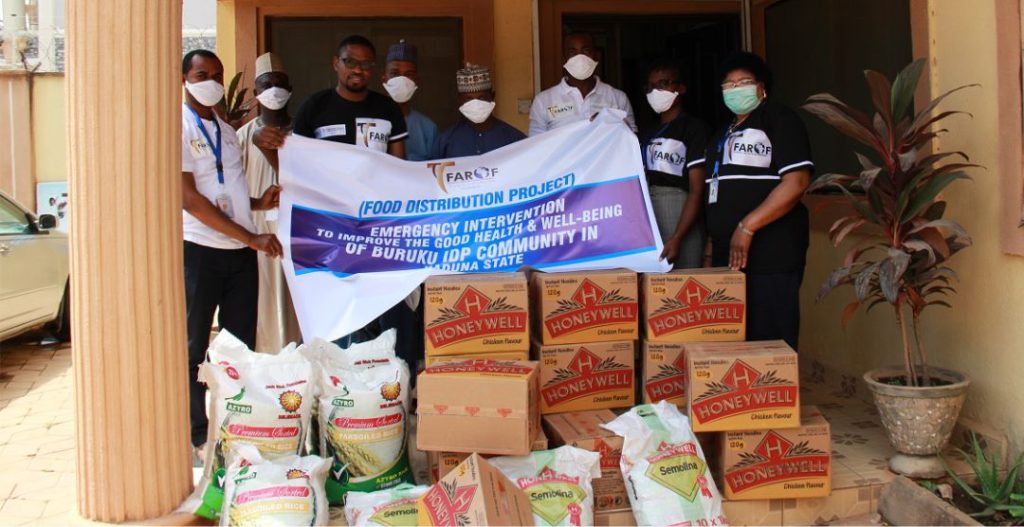
PIC: Distribution of Nutriteous meal to Migrants in Buruku IDP community
How does the COVID-19 Virus spread?
The virus is transmitted through direct contact with respiratory droplets of an infected person (generated through coughing and sneezing), and touching surfaces contaminated with the virus. The COVID-19 virus may survive on surfaces for a few hours to several days, but simple disinfectants can kill it. Studies to date suggest that the virus that causes COVID-19 is mainly transmitted through contact with respiratory droplets, rather than through the air.
What are the symptoms of coronavirus?
Symptoms can include fever, cough and shortness of breath. In more severe cases, infection can cause pneumonia or breathing difficulties. More rarely, the disease can be fatal.
These symptoms are similar to the flu (influenza) or the common cold, which are a lot more common than COVID-19. This is why testing is required to confirm if someone has COVID-19. It’s important to remember that key prevention measures are the same – frequent hand washing, and respiratory hygiene (cover your cough or sneeze with a flexed elbow or tissue, then throw away the tissue into a closed bin). Also, there is a vaccine for the flu – so remember to keep yourself and your child up to date with vaccinations.
Preventive Measure Do The Five
-
01
HANDS -------- Wash them often
-
02
ELBOW -------- Cough into it
-
03
FACE -------- Don't touch it
-
04
SPACE -------- Keep safe distance
-
05
HOME -------- Stay if you can
There’s currently no vaccine to prevent coronavirus disease (COVID-19).
You can protect yourself and help prevent spreading the virus to others if you:
- Do Wash your hands regularly for 20 seconds, with soap and water or alcohol-based hand rub
- Avoid close contact (1 meter or 3 feet) with people who are unwell
- Stay home and self-isolate from others in the household if you feel unwell
- Don’t Touch your eyes, nose, or mouth if your hands are not clean
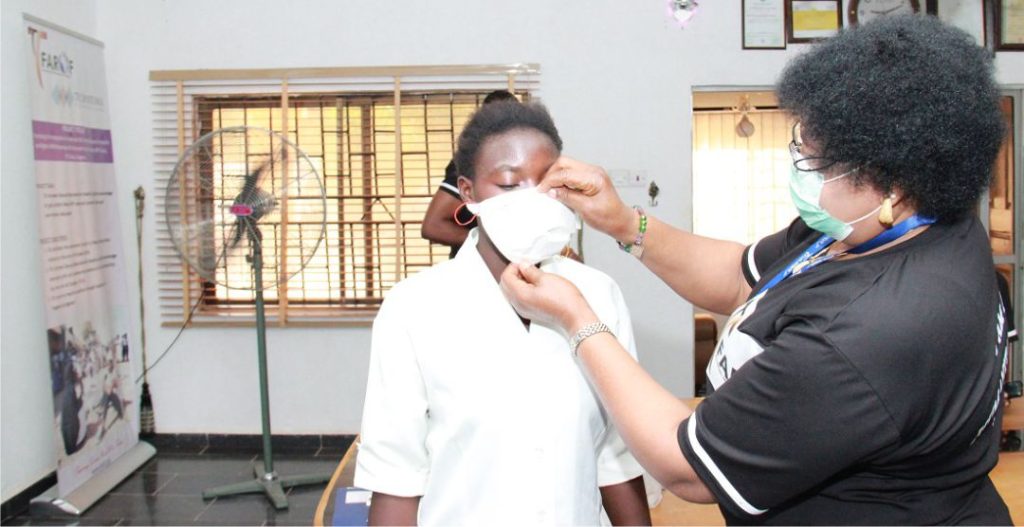
PIC: Key Messages and Actions for COVID-19 Prevention and Control in health centers
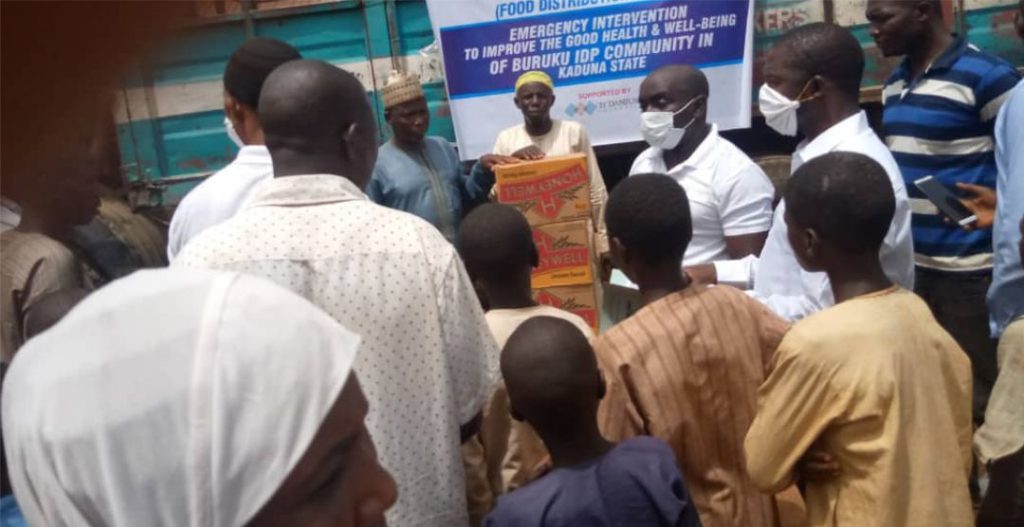
PIC: Reaching out to IDP Communities through Nutrition and practice of proper hygiene (COVID -19 Outreach)
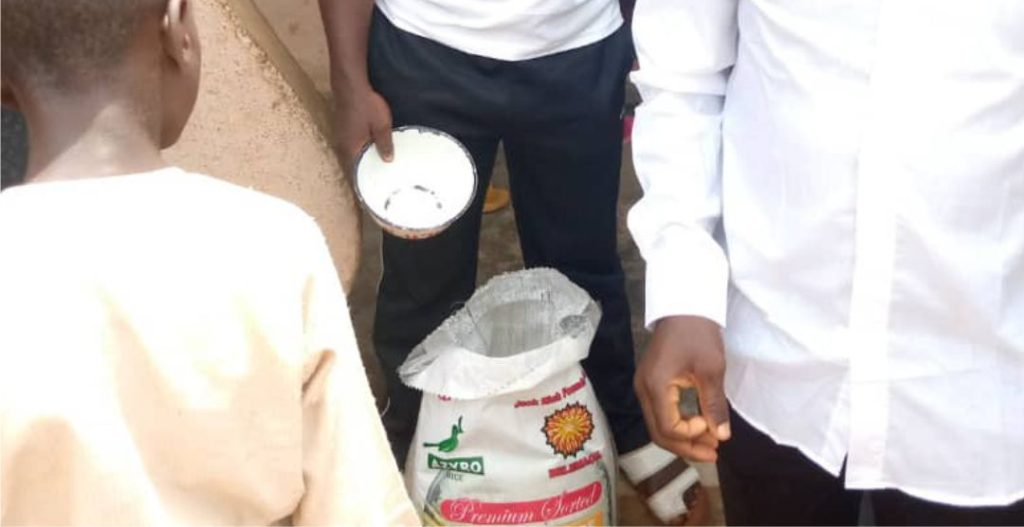
PIC: Distribution of healthy meals to IDP communities in Nigeria
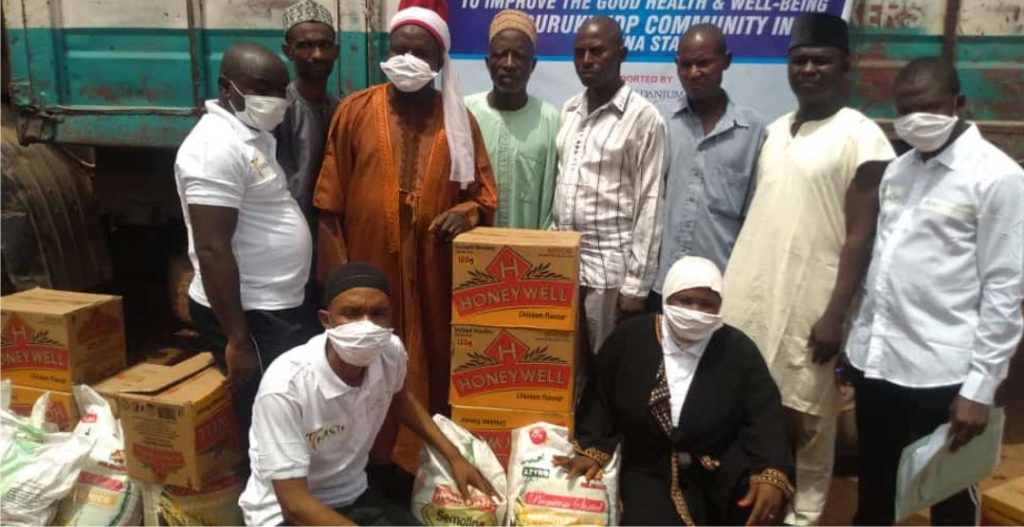
PIC: COVID-19 activities supported by the TY Danjuma Foundation
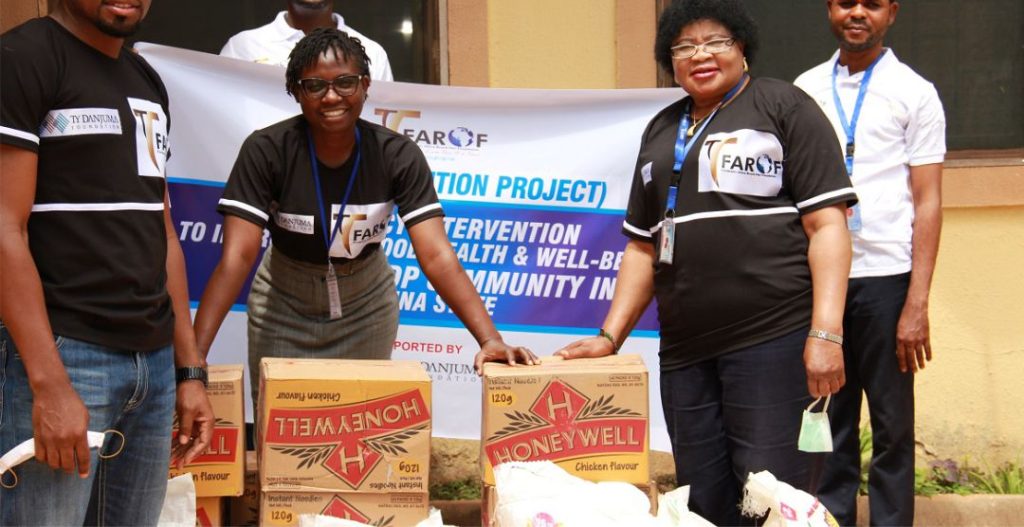
PIC: Preventing Global Food Security Crisis under COVID-19 in northern Nigeria IDP Camps
At the time of writing, many priority countries are working on or just issuing their revised plans for the COVID-19 response. Funding requirements have not yet been estimated for a number of countries. For this reason, individual country requirements will be provided in the next update of the Global Humanitarian Response Plan (HRP).
Purpose and scope
The COVID-19 Global HRP is a joint effort by members of the Inter-Agency Standing Committee (IASC), including UN, other international organizations and NGOs with a humanitarian mandate, to analyse and respond to the direct public health and indirect immediate humanitarian consequences of the pandemic, particularly on people in countries already facing other crises.
It aggregates relevant COVID-19 appeals and inputs from WFP, WHO, IOM, UNDP, UNFPA, UN-Habitat, UNHCR, UNICEF and NGOs, and it complements other plans developed by the International Red Cross and Red Crescent Movement.
NGOs and NGO consortiums have been instrumental in helping shape the plan and conveying local actors’ perspectives, and they will play a direct role in service delivery. NGOs will be able to access funding mobilized in the framework of this plan and related country plans through partner arrangements with UN agencies, through pooled funding mechanisms, including Country-Based Pooled Funds, and through direct donor funding.
This ensures complementarity, synergy, gaps and needs identification, and a coordinated response. The Global HRP also complements and supports existing government responses and national coordination mechanisms, with due consideration paid to the respect for humanitarian principles.
The Global HRP identifies the most affected and vulnerable population groups in priority countries, including countries with an ongoing Humanitarian Response Plan, Refugee Response Plan or multi-country/subregional response plan, as well as countries that have requested international assistance, such as Iran. Updates to existing country plans should be initiated to ensure that humanitarian organizations are prepared and able to meet the additional humanitarian needs occasioned by the pandemic. Further updates to these plans will likely be necessary if a major outbreak occurs. In other countries, a humanitarian response plan/Flash Appeal should be considered if they are unable to cope with the emergency.
